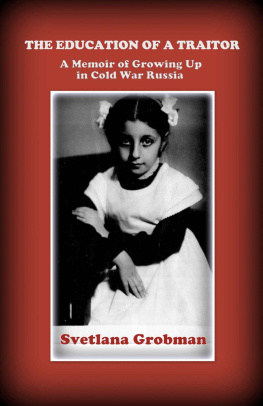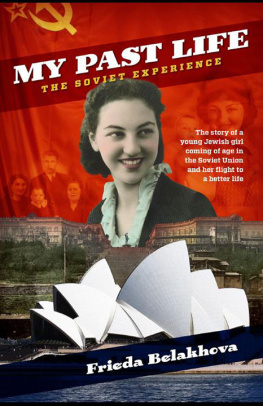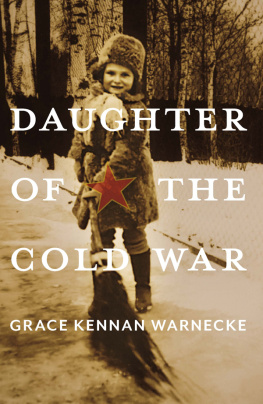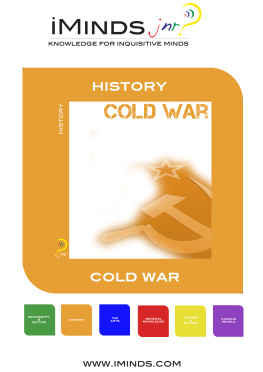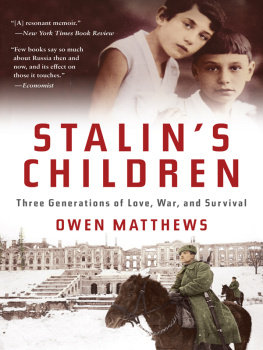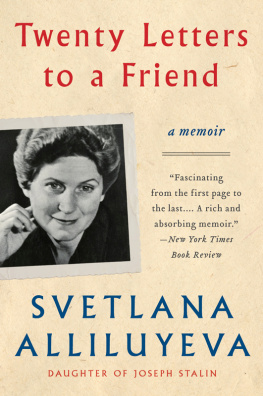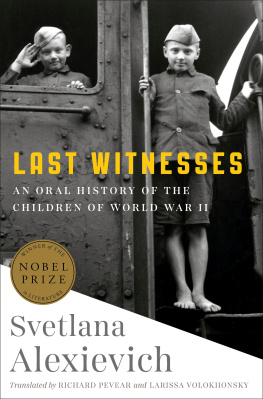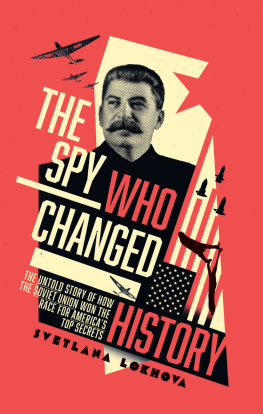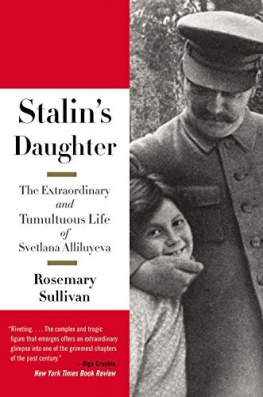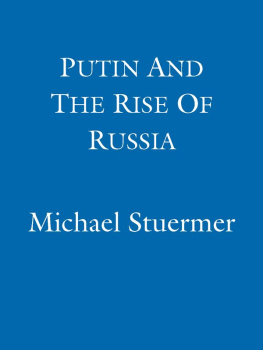All rights reserved. No part of this publication may be reproduced, distributed or transmitted in any form or by any means, without prior written permission.
3212 S Old Ridge Rd.
Publishers Note: This work is a literary memoir. The experiences and conversations recounted here are the result of the authors recollections. Therefore, they are a subjective account of events that occurred in her life. Her perceptions and opinions are entirely her own.
The Education of a Traitor/Svetlana Grobman . -- 1st ed.
Grobman, Svetlana, 1951Childhood. Coming-of-age-stories. JewsSoviet UnionBiography. Soviet UnionAnti-Semitism. UkraineWorld War, 1939-1945German atrocities. Soviet UnionCold War. Soviet UnionSocial conditions20th century. Immigrants.
The distinction between the past, present, and future is only a stubbornly persistent illusion.
ABOUT THE AUTHOR
Svetlana Grobman is a Jewish immigrant from Russia who was born in Moscow in 1951. She moved to the United States in 1990. While living in Russia, Grobman was an engineer and an editor for the Soviet Encyclopedia. Now she is a librarian and freelance writer living in Columbia, Missouri. The Education of a Traitor is Grobmans first book, and she is currently working on her second.
CONTENTS
TH E
PROLOGUE
I am running along the twisted streets of a strange town. It is late and the streets are dark and silent except for the sound of my shoes tapping desperate Morse code signals into the black world. A winding street climbs to a tower on top of a hill whose windows are as dark as everything else in this town. Where are the people? Are they all asleep? Or dead? No, no! I wont think about death! I carry a message for these people. An important message! Ill think of something nice instead, like flowers or, better yet, mountainsthe way they appear in the night, dim silent giants propping up a sky encrusted with glimmering stars.
I reach the tower door and try to open it. The door is locked. I ring a bell. No answer. I ring againtwice, three times. I keep my finger pressed on the bell button and listen to the piercing sounds sinking into the depth of the house. I shout, Is anybody there?
Muffled footsteps sound behind me. I turn sharply. Nobody. I continue ringing. More footsteps. I turn again. Not a soul. My heart is about to jump out of my chest, and my voice is breaking, Open, open, please!
Suddenly, the door flies open and a tall silhouette appears in the dark hallway, Ive been waiting for you. I recoil. Yes, we've been waiting for you, echoes behind me, too.
I spin aroundtwo more silhouettes loom in the street. I freeze. How did they know I'd come at this hour? Nobody was supposed to know! Did they spy on me? Is this a trap?
I jerk and try to shrink away from the door, but several invisible hands grab my shoulders, pull my clothes, and push me back into the dark doorway. I fight them silently and vigorouslyuntil I feel the barrel of a gun against my spine.
Let me go! I scream, but no sound comes out of my throat, not even a squeak. Something slippery and cold tightens its grip around my neck, blinds my eyes, and squeezes my chest. Leave me alone! I try again. I know nothing! Let me go-o-o-o!
With all my strength, I try to break away, only to wake up to the sounds of my own moaning.
Ever since I can remember, I have had nightmares. A week rarely goes by without me waking up at night screaming. Nightmares are as much a part of my life as the pop-up spring thunderstorms in my home country, Russia, or the vibrant fall colors of the American Midwest, where I live now.
For a long time, my nightmares were about wars. This is no surprise, since I was born in Moscow six years after the Great Patriotic War (the Second World War) ended, and I grew up in the shadow of its grim memories. War stories were as common in my childhood as lullabies are for the American child. These stories were everywhere, in books, in movies, and on TVabout Russian soldiers and partisans, about the suffering of our civilians, about ill-fated lovers caught in the ravages of war, and whatever else war stories can be about.
The stories were heroic, moralizing, and sad, because the main characters always died. Some of them died in battle, struck by bullets or shrapnel. Others were crushed by tanks or torn apart by bombs, and others were betrayed by traitors and died under torture. Even those who almost survived the war died on the last dayor the day afterwhile they were preparing to go back home. There was no escape for them. Heroes died because that was what made them heroes, and traitors died because that was what our justice demanded.
As for the millions of people displaced by chance and misfortunePOWs or civiliansthey remained under a cloud of suspicion. How could they surrender alive? Why didnt they die the way heroes did? If they came back, they were sent to Siberian gulags. If they disappeared in the maze of the world, they were quickly forgotten, as if they had never been born. Everything was black and white, with no nuances and no half tones. Historyin our judgmenthad mercy for no one, since, clearly, there was no higher honor or a better destiny than to die for our country.
Time and again, I would turn over the last page of a book and ask myself, could I run forward into heavy fire? Could I endure torture, knowing that in the end I'd be hanged by the Germans, like the eighteen-year-old partisan, Zoya Kosmodemyanskaya, died on a freezing November day in 1941, with her head held high, shouting, I am happy to die for my people!? Would I have the courage to intercept machine-gun fire with my own body, like another young hero, Alexander Matrosov, who threw himself onto a German pill-box in February 1943 to allow his unit to advance?
That was what true patriots did, and I longed to be a true patriot. I just did not want to be a dead patriot. There must be a way of proving my worth to my country while staying alive, I thought to myself, like being a good student, following the precepts of Grandfather Lenin, which we studied in school, and of course, loving my homeland and never, ever, under any circumstances, leaving it.
Yet leave it I eventually did. By the time of my departure, I no longer felt patriotic toward the country of my birth, and I did not care about being called a traitor for abandoning it. I learned that the land I loved so much never cared for me. In fact, it did not care for anybody, only for its pompous marches in Red Square, its false pretenses, and its power to imprison us.
It didnt take me too long to acquire this knowledgemost of my education would be complete by the age of fifteen. After that, all I could do was wait and hopewait to grow up, and hope that the Soviet regime would release its grip on me, and others like me, to finally let us go.
CHAPTER ONE
BIRCH TREES
To celebrate my birth in 1951, my parents planted two birch trees beside our apartment house in Moscow. I cannot actually remember this, but my parents have told me about it so often that, eventually, I began to feel as though I were there with them, watching my father dig two holes in the thawed ground and lower two spindly saplings into their depths. I do remember growing up with these trees and being proud of the fact that my arrival in this world was marked by something alive and symbolic, for birches are symbols of my mother country Russia, as bald eagles are symbols of the United States. This is why, to this day, birch trees remain an anchor for my early memories.

